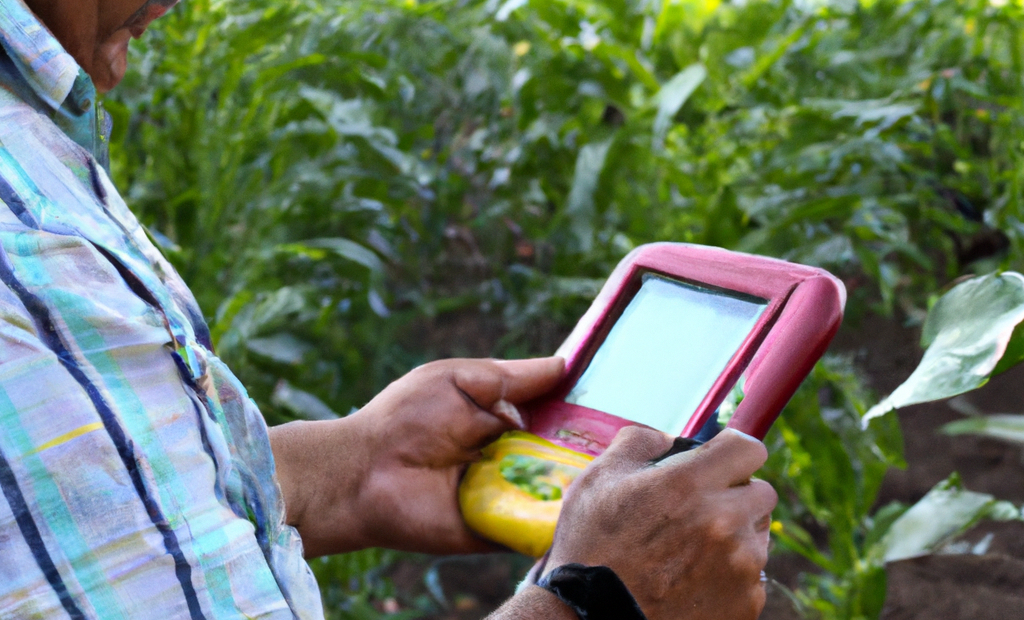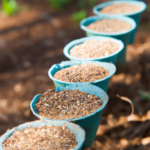The sections discuss the importance of biofertilizers and organic farming in improving soil and crop health. Crop mapping techniques are highlighted that allow for more efficient and sustainable application of fertilizers, which improves yields and reduces environmental impact. Innovations in the early detection of health problems in crops are also emphasized and organic farming is presented as a sustainable alternative to health and environmental problems caused by the excessive use of traditional agricultural products.
In the changing world of agriculture, technological innovation plays a crucial role in promoting sustainable and efficient practices. One of these innovations is crop health mapping, an invaluable tool that allows farmers to proactively monitor and improve the health of their crops. This article dives into recent innovations in this field, with a particular focus on the use of biofertilizers and organic farming. We will explore how fertilizers are changing the game in the technological improvement of crop mapping and how agricultural products are impacting new trends in this field. Whether you are interested in biofertilizers, organic farming, or are simply looking to understand how innovations in crop health mapping can benefit your farm, this article will provide you with valuable and up-to-date information.
- 1. "Using biofertilizers in crop health mapping innovation"
- 2. "The role of fertilizers in technological improvement of crop mapping"
- 3. "Organic farming: Innovations in crop health mapping"
- 4. "Products for agriculture and their impact on new crop health mapping trends"
1. "Using biofertilizers in crop health mapping innovation"
In the field of organic farming, the use of biofertilizers has become a crucial innovation for mapping crop health. Biofertilizers, in contrast to synthetic fertilizers, offer a more sustainable and beneficial approach to soils and crops, improving their health without compromising the environment. These agricultural products, loaded with beneficial microorganisms, help enrich soil quality, optimizing nutrient absorption by plants and improving their resistance against diseases. Consequently, the use of biofertilizers can provide more accurate and useful data in mapping crop health, allowing farmers to make more informed decisions to maximize the productivity of their fields. This advance promises more efficient and sustainable agriculture, and highlights the value of innovation in the sector.
2. "The role of fertilizers in technological improvement of crop mapping"
Fertilizers play a crucial role in technological improvement of crop mapping. With the advancement of technology and growing interest in organic farming, farmers are increasingly using innovative techniques to map the health of their crops. Fertilizers, including biofertilizers, are essential in this process since they provide crops with the necessary nutrients for their optimal growth and development. Through the use of various mapping technologies, farmers can accurately identify areas that require the most fertilizers, allowing for more effective and sustainable application of these products for agriculture. This not only improves crop health and yield, but also reduces environmental impact by minimizing excessive use of fertilizers.
3. "Organic farming: Innovations in crop health mapping"
Organic farming has experienced a boom in recent years, seeking more sustainable and environmentally friendly alternatives for food production. In this context, significant innovations have emerged in crop health mapping, allowing farmers to detect problems early and act accordingly. Among these innovations, the use of biofertilizers and specific products for organic farming stands out, which contribute to improving the health of the soil and, therefore, that of the crops. These fertilizers, being of natural origin, not only nourish the plants but also promote soil biodiversity, which in turn positively influences the resistance of crops to pests and diseases. Likewise, mapping the health of crops allows optimizing the application of these products, since it can be determined precisely where and when they are necessary. In short, innovations in this area are promoting more efficient and sustainable organic agriculture.
4. "Products for agriculture and their impact on new crop health mapping trends"
Agricultural products have undergone a significant evolution with the aim of contributing to new crop health mapping trends. Fertilizers, for example, have been instrumental in improving crop productivity, but their excessive use has led to environmental and health problems. For this reason, organic farming has positioned itself as a sustainable alternative, giving way to the use of biofertilizers, agricultural products that not only nourish plants, but also improve the structure of the soil and its capacity to retain water and nutrients. These advances in agricultural products, along with innovative crop health mapping technologies, are allowing farmers to optimize their practices, increase their yields and, at the same time, reduce their environmental impact.
Innovation in crop health mapping is a crucial tool to improve productivity and sustainability in agriculture. The use of biofertilizers and other agricultural products has proven to be an essential component in this technological evolution, as they contribute significantly to the effectiveness of these advanced mapping methods. These advances have allowed for a more precise and efficient approach to crop health management, which in turn has had a positive impact on organic farming. As the agricultural sector continues to evolve, it is essential that these innovations continue to be developed and adopted to ensure the health of our crops and the sustainability of our agricultural practices.


